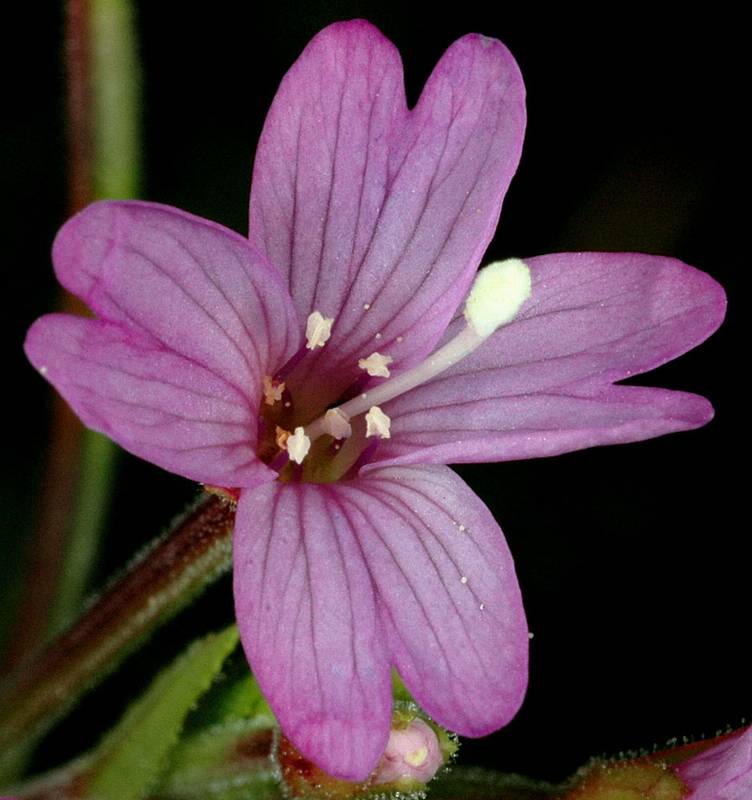Epilobium ciliatum
Epilobium obcordatum
ciliate willowherb, Watson's willowherb
Leaves opposite, short-petiolate, narrowly lanceolate to ovate-lanceolate, 3-7 cm. long, serrulate.
Inflorescence of racemes terminal on the branches;
sepals 4, 2-5 mm. long, purplish;
petals 3-10 mm. long, notched, white or cream to deep purplish-red;
stamens 8;
stigma entire or shallowly 4-lobed;
ovary inferior, 4-celled.
Capsule 4-8 cm. long, linear;
seeds with a tuft of white hairs on the tip.
Epilobium ciliatum
Epilobium obcordatum
Widely distributed on both sides of the Cascades crest in Washington. Alaska to California, east across most of North America to the Atlantic Coast.
- Local floras:
BC,
CA,
OR,
WA
- Local Web sites:
CalFlora,
CalPhotos,
Flora NW,
PNW Herbaria
WildflowerSearch
iNaturalist (observations)
USDA Plants Database
- LBJ Wildflower Center
- SEINet
- Plants of the World Online
- Encyclopedia of Life
- Wikipedia
- Google Image Search


